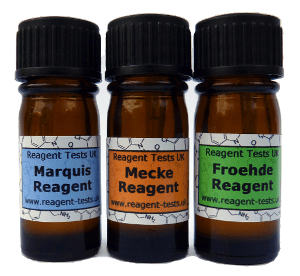
Resolves YES on Jan 1, 2026 if I think that taking 120mg MDMA once every two months is less damaging to health than drinking two beers every night for 8 days in a row once every two months with >90% probability.
Beer drinker doesn't take MDMA or drink alcohol outside the 8 days and MDMA taker doesn't drink alcohol.
I will not trade in this market.
Edit: If I think that taking MDMA isn't relatively dangerous with high confidence given that the user is using some known trick like taking particular known supplements, this market will resolve YES.
Alcohol use less than 25mg per day has no association with excess mortality - no protective benefit either.
https://jamanetwork.com/journals/jamanetworkopen/fullarticle/2802963
I think that's likely too much MDMA too frequently unfortunately.
@Simon3c6c hmm the article seems to suggest 5 weeks is too often to avoid some tolerance build up and that 3 months is an amount that's more or less guaranteed to not have tolerance effects, not that it poses any risks. I suppose that could pose a risk if you also increased doses commensurately, but this question is pretty specific about doses and frequency.
It is. This thread:
https://www.reddit.com/r/MDMA/comments/3r09sg/thoughts_on_taking_supplements_with_mdma
Linked from:
https://rollsafe.org/page/how-often-can-you-take-mdma-molly-ecstasy-and-roll/
Is also interesting. On balance I think the information is insufficient to make a confident determination that MDMA is less harmful.
@Simon3c6c rollsafe also make an intereting point that it is common to lose "the magic" and suggest recreational use may reduce success of future therapeutic use.
Given how bad PTSD and treatment-resistant depression are, and how little therepeutic value alcohol has in relation to these problems, it seems reasonable to assess the regular use behaviour as more damaging to lifetime health on these grounds also.
@Jason Let's say they're a randomly sampled 30-year-old from the United States and the question is in expectation.
Alcohol is one of the most toxic things we regularly put in our bodies. It's known to have a causal link to depression and other mental health issues, it strongly contributes to nutrient deficiencies while increasing caloric intake, is significantly more addictive, plays a role in widespread endemic social and cultural issues like abuse and sexual assault, and so much more. MDMA had a serious propaganda campaign led against it a few decades ago as a part of the wider US war on drugs and backlash against rave subculture movements, and all the research I was shown in my brief biochemistry classes comparing recreational drugs in college a decade ago pointed to it being mostly harmless (esp at normal doses) and much maligned.
the wikipedia article https://en.wikipedia.org/wiki/MDMA#Long-term is nice
There is no evidence of structural or functional changes in MDMA users with only a moderate (<50 doses used and <100 tablets consumed) lifetime exposure. Nonetheless, MDMA in moderate use may still be neurotoxic.[64][contradictory] Furthermore, it is not clear yet whether "typical" users of MDMA (1 to 2 pills of 75 to 125 mg MDMA or analogue every 1 to 4 weeks) will develop neurotoxic brain lesions.[65] Long-term exposure to MDMA in humans has been shown to produce marked neurodegeneration in striatal, hippocampal, prefrontal, and occipital serotonergic axon terminals.[63][66] Neurotoxic damage to serotonergic axon terminals has been shown to persist for more than two years.[66] Elevations in brain temperature from MDMA use are positively correlated with MDMA-induced neurotoxicity.[11][63] However, most studies on MDMA and serotonergic neurotoxicity in humans focus on the heaviest users, those who consume more than seven times the average. It is therefore possible that no serotonergic neurotoxicity is present in most casual users
The obvious conclusion: "idk"
I find stuff like Fig 1 here pretty alarming (visible difference in monkey brain scans 7 years later): https://www.jneurosci.org/content/19/12/5096 Not sure if dosages are actually reasonable etc though, and also this is too wild looking for something weird to not be going on, since people who do MDMA are not clearly brain damaged.
actually reading it, the methodology seems reasonable, but as you note the dosage was ". Racemic MDM A hydrochloride, dissolved in a sterile
0.9% sodium chloride solution, was injected subcutaneously at a dose of
5 mg / kg twice daily (9 A.M. and 5 P.M.) for 4 consecutive days. MDM A
was administered on a milligram per kilogram basis, with the dose
expressed as the hydrochloride salt. This particular dosage regimen of
MDM A was selected because it is one that is known to produce mod-
erate to severe 5-HT lesions, depending on brain region (Ricaurte et al.,
1988a,b)."
@Jacknaut I haven't looked into it carefully yet, this is more to elicit information from Manifold users. I think it's plausible I look into it more carefully before 2026.
Manifold information probably isn't gonna be better than e.g. pre-ACX, early ssc comments, the incentive to make fake money (or even real money) wouldn't make up for the intelligence/knowledge/skills of the participants as well as the goal (convincing a random person isn't at all similar to 'finding out what's accurate')
ie i'm not betting on this because "will you think" is something that depends a lot more on contingent details about you than 'is mdma actually bad', and i don't see how one can conclude otherwise given 'the entire drug/nootropics community', even though 'is mdma bad' is an interesting topic to research. the '>90% confidence' just makes it even weirder
Well I'm interested in whether I'll have high confidence beliefs vs. some other metric because that's what I'm actually interested in. It seems possible that having markets with more legible evaluation criteria would be more informative and easier to trade on, but I'm not sure what sorts of legible markets would be informative for this question.
